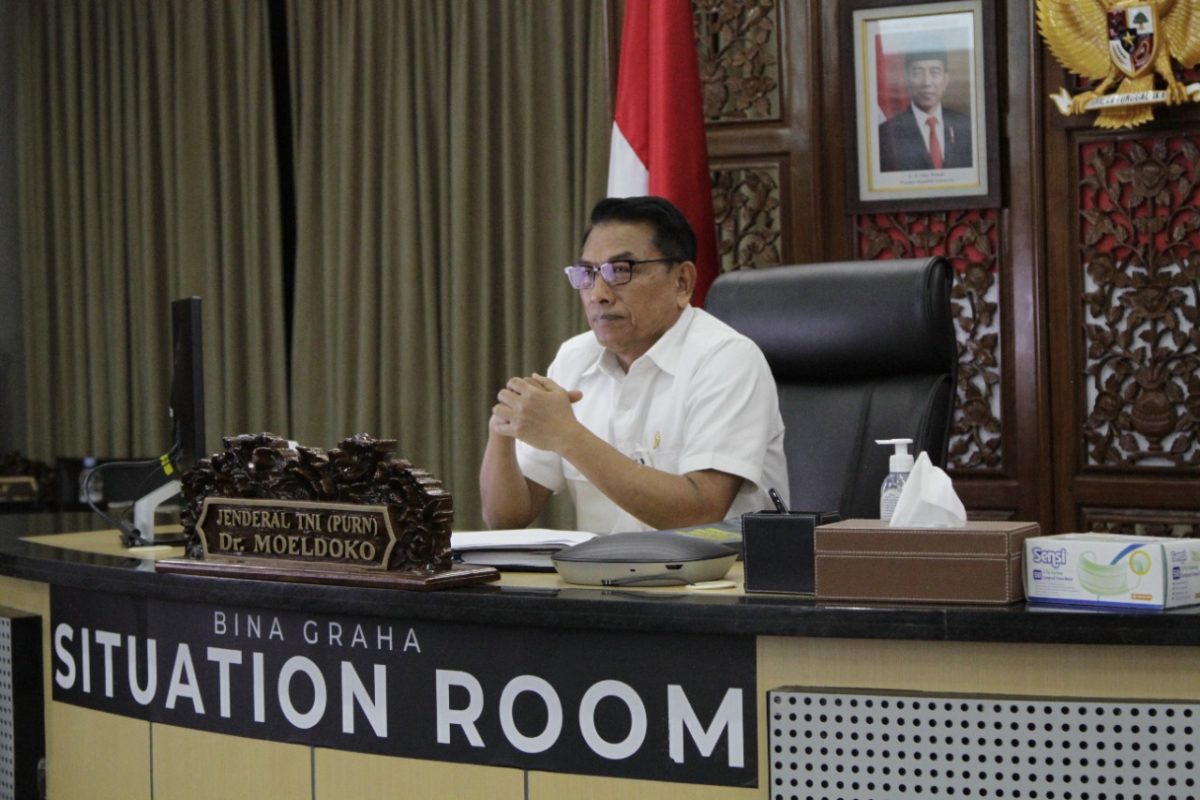Jakarta – The Presidential Chief of Staff (KSP) Dr. Moeldoko said that prosperity and independence for Indonesian farmers must be put into priority, calling the action to increase the capacity of farmers in the country.
In a virtual public discussion on Thursday (19/8) about the book titled "Independence for Farmers, Independence for All of Us" written by Prof. Agus Pakpahan, Moeldoko agreed that several agricultural development strategies in Indonesia had reduced the independence of farmers. Furthermore, he emphasized that sustainable agriculture played a role as a starting point for national development.
"Farmers' welfare needs to be consistently improved because the independence of farmers will affect the independence of the community as a whole, especially in terms of meeting everybody’s basic needs," said Moeldoko.
The retired Indonesian Military (TNI) General who is also the Chairman of the Indonesian Farmers Association (HKTI) added that the independence of farmers can be easily seen from the prosperous living conditions and it can be measured from at least three things, namely the level of education, economic assets, and the level of self-reliance.
Amid this COVID-19 Pandemic, the agricultural sector has proven its resilience to become the leading sector that cushions the national economy. In 2020, when the whole macroeconomic sector recorded a contraction or minus 2.07 percent, the agricultural sector grew positively by 1.75 percent.
Based on the 2018 agricultural survey, the number of Indonesian farmers reached 33.5 million, with the number of farmer households reaching 27.2 million. This figure increased by 5.7 percent compared to 2013 which amounted to 25.7 million households.
However, according to the 2013 Agricultural Business Household Income Survey (SPP 2013) of the Indonesian statistics agency (BPS), the average income of farmers in the agricultural sector was only Rp 12.4 million per year or approximately Rp 1 million per month. The average income was still considered too low considering the hard work done by the farmers.
"The ups and downs of Indonesian agriculture are highly dependent on the synergistic cooperation between the Government, business sectors, farmers, academics, even political parties and so on," he said.
The government has continuously improved the capacity of farmers, including empowering women farmers and millennial farmers to strengthen the country’s agriculture sector. It has been showcased from training and internship programs in several companies provided for women and millennial farmers, in order to guarantee equal access for farmers in knowing some other economic actors.
The government also vowed to continuously push for food diversification programs, to allow the farmers to develop other agricultural products with added value. Moeldoko also mentioned the development of the porang plant in East Java as one of the food diversification programs that is currently being developed by the government.
“Millennial farmers and women farmers also play an important role in determining the future of Indonesian agriculture, I agree with Dr. Moeldoko," said Dr. Bayu Eka Yulian, Lecturer of Human Ecology Study at Bogor Agricultural University (IPB).
